Can Bearded Dragons Eat Cherries? TopFlight Dubia Explains
Posted by Mia Nguyen on Apr 5th 2024
Every meal, every treat, and every bite matters when it comes to bearded dragons’ health.
However, when you feed your beardie with the wrong food, even in small amounts, it can have serious consequences.
For example, food with higher amounts of phosphorus than calcium can lead to calcium deficiency in the bearded dragon’s body.
So, it highlights the importance of knowing the nitty-gritty of new food you will include in your pet’s diet.
If you are adding new food like cherry to your pet’s plate, you have to know whether this fruit can enhance the health and happiness of your bearded dragon.
Cherries are a subtle fruit that most human loves for their sweet, tart, and nutrient benefits. But, for bearded dragons, it may or may not be suitable.
Let’s discuss more into TopFlightDubia’s guide on cherries for bearded dragons.
Can bearded dragons have Cherries?
Yes, bearded dragons can eat cherries, but they should not be offered very often. You can feed cherries once a month.
Nutritional Profile Of Cherries
Cherries contain key nutrients such as:
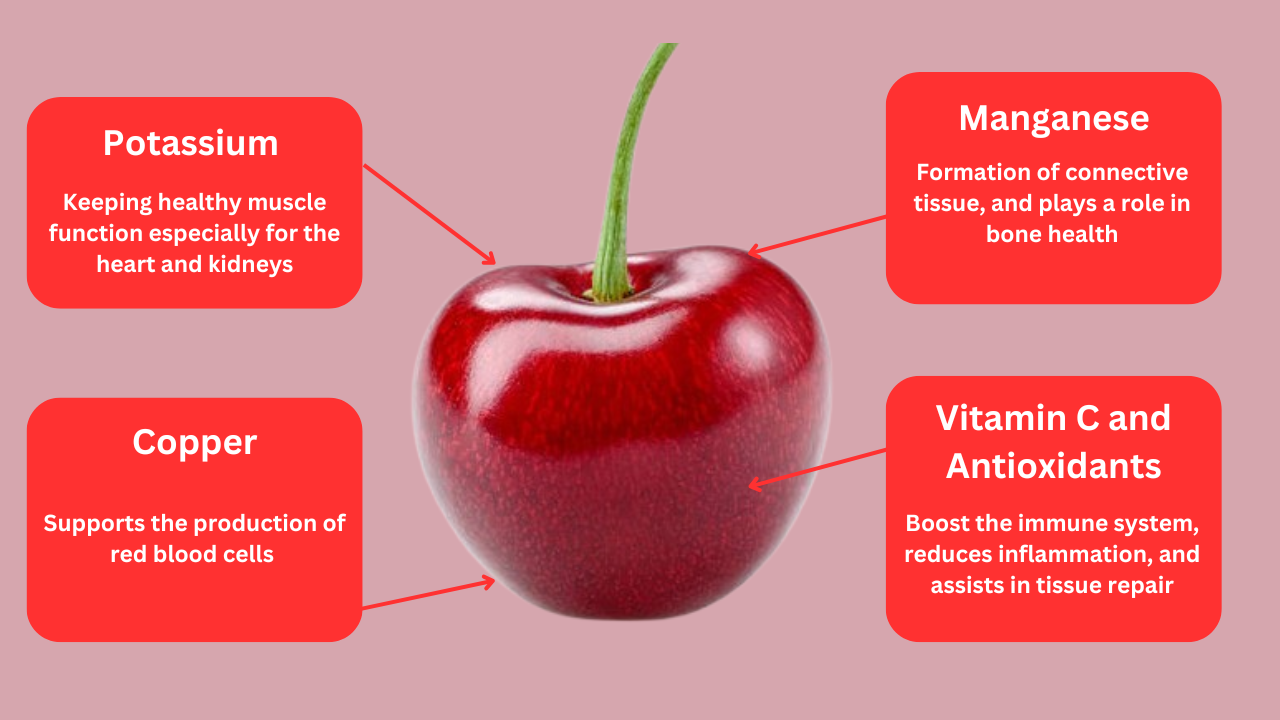
Nutritional Comparison: Cherries vs. Other Fruits
Let’s dive into the nutritional differences between cherries and other fruits.
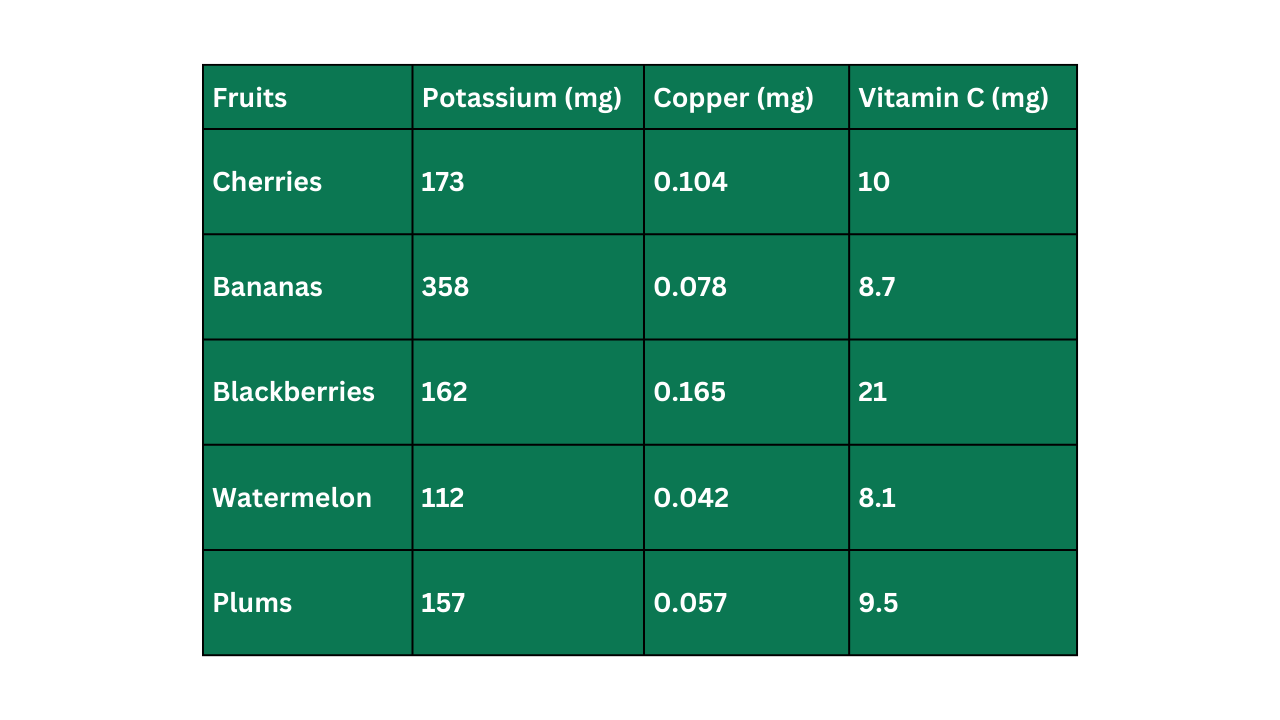
NOTE: While these fruits offer vital nutrients, it is essential to offer them in moderation. Fruits that are richer in potassium, copper, and Vitamin C can help improve your beardie’s immune system and overall health.
Calcium to Phosphorus Ratios Comparison
The Calcium to phosphorus ratio plays an important role in a bearded dragon’s diet. It directly impacts the bone health and overall well-being of beardies. Typically, bearded dragons need an ideal Ca:P ratio that is 2:1.
So, here is the table comparing the Ca:P ratios of different fruits.
Note that, in the chart, the numeric value of calcium is denoted, while the numeric value of phosphorus is considered to be 1.
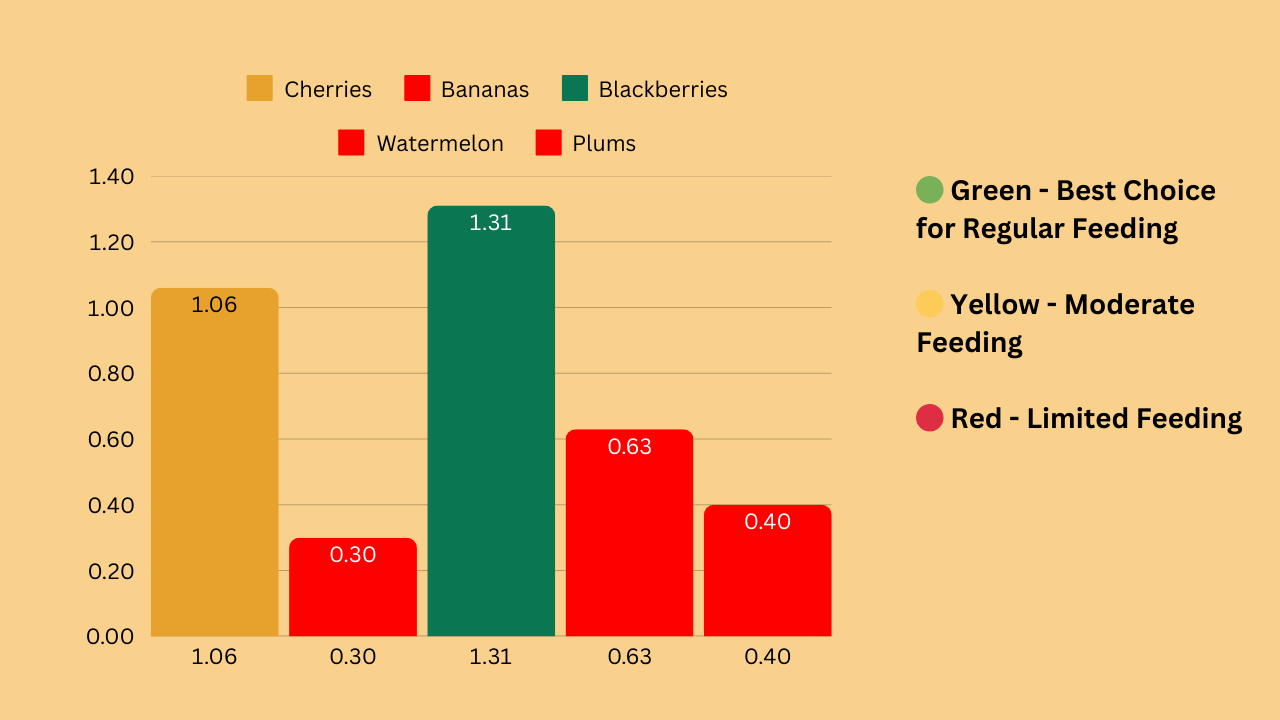
NOTE: It can be seen from the chart that the cherries should be fed occasionally as a treat to maintain the mineral balance in the bearded dragon’s body.
Sugar Content Comparison
It is important to keep in mind the sugar content present in the fruits such as cherries to avoid the health issues such as obesity or poor digestion. Feeding your pet with the right amount of fruit can help to ensure their overall well-being. So, here is a comparison analysis of sugar content in various fruits, including cherries.
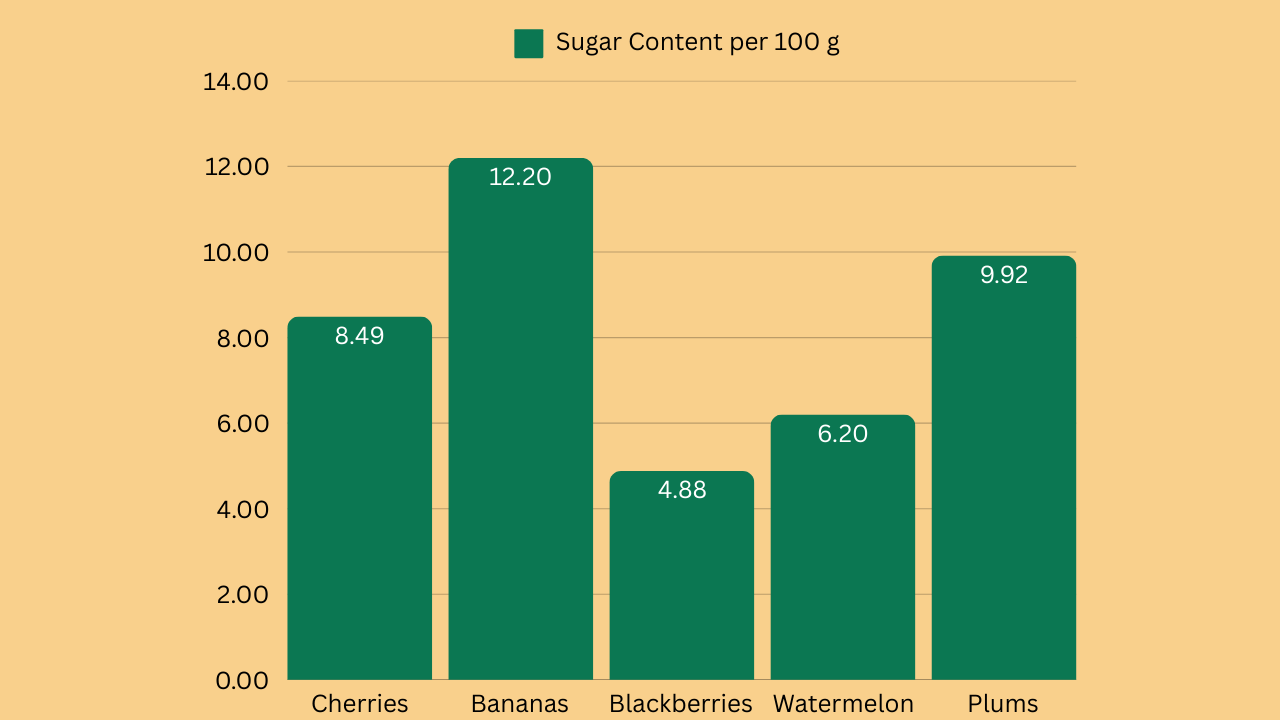
It is evident that cherries are high in sugar content, which makes them to be given occasionally.
Can Bearded Dragons Have Cherries Everyday?
No, bearded dragons should not have cherries every day due to the following reasons:
Calcium and Phosphorus
For a healthy adult bearded dragon, the required calcium to phosphorus ratio should be between 1.5:1 and 2:1. In cherries, the ratio is 1.06:1, which is not close to the ideal Ca:P ratio (2:1). So, this suggests that to feed the cherries limited amount so to prevent calcium absorption by phosphorus in the bearded dragons’ body.
Digestive Issues
If you feed lots of cherries to your pet, it may result in digestive issues. Also, there is a large amount of water present in the cherries, which can lead to digestive problems such as diarrhea.
How to Feed Cherries to Bearded Dragons
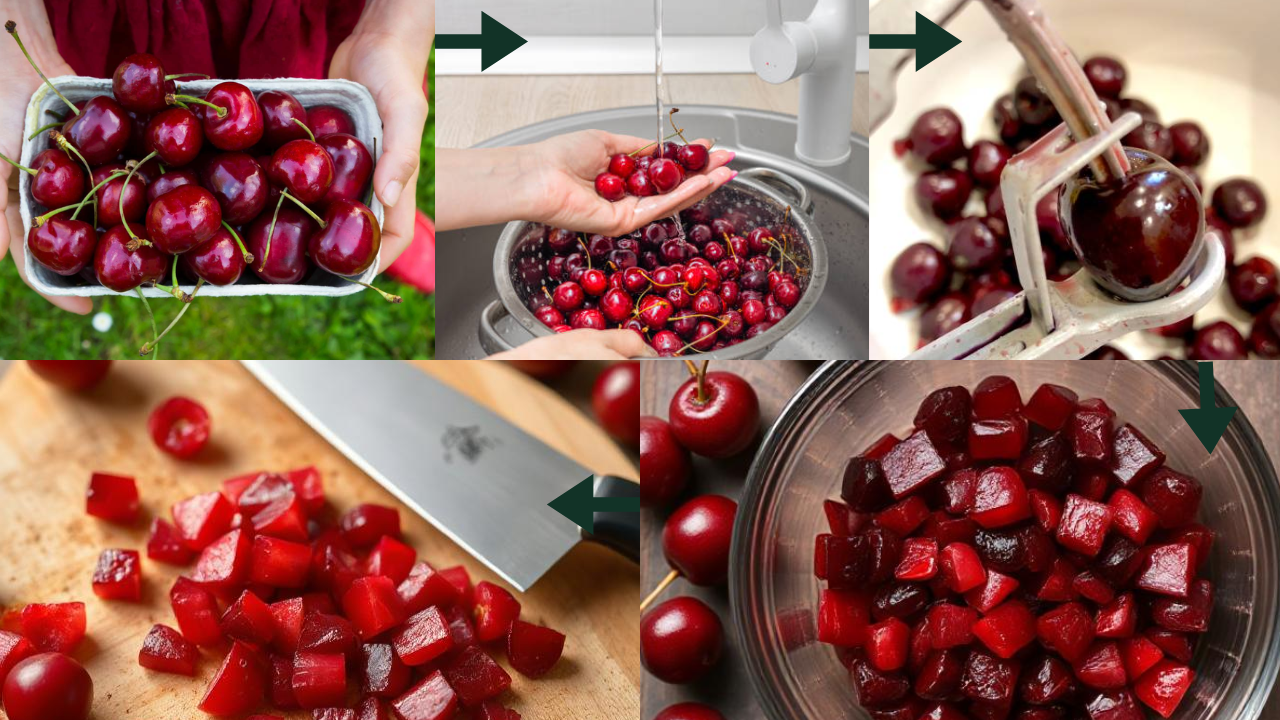
1. Select the Fresh Cherries
Choose the plump, firm cherries with bright green stems attached.
2. Wash the Cherries Properly
You can either put them in a water bowl or just wash them under running water.
3. Remove the Pits
Use the cherry pitter or a knife to remove the pits from a cherry.
4. Cut the cherries into small pieces
Chop the cherry flesh into small pieces using a sharp knife on a cutting board.
5. Offer the Pieces as an Occasional Treat
You can feed the pieces to your pet once a month.
|
NOTE: Never feed the whole cherry, as it can result in a choking hazard for the bearded dragons. |
Conclusion
Bearded dragons can eat cherries but in limited amounts, preferably once a month. However, this fruit contains lots of nutrients like potassium, calcium, and many more. But, it is also necessary not to feed them regularly to avoid digestive and other issues. So, make sure to feed them in small pieces, which are easier to eat and consume.

